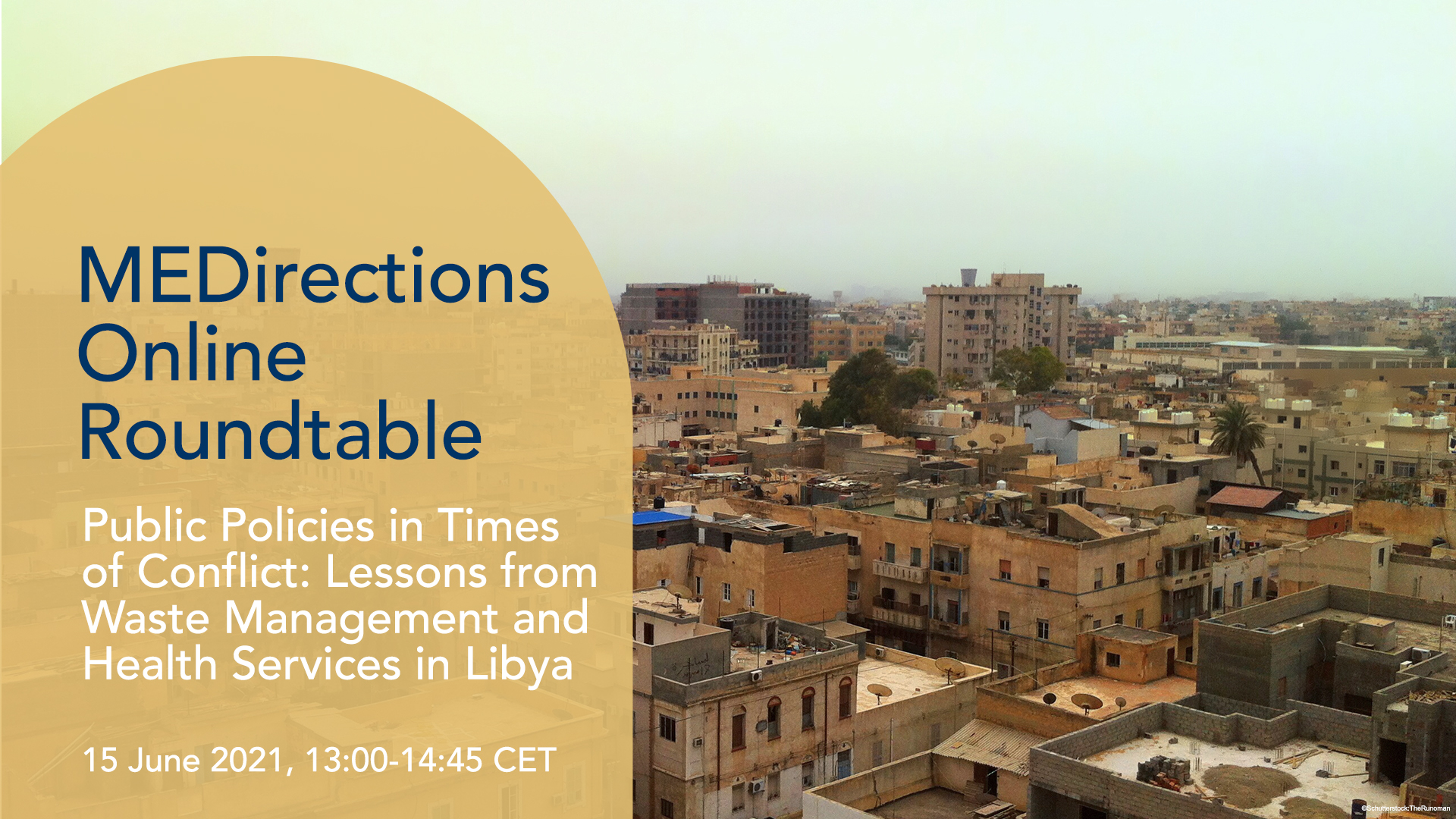
The aim of the roundtable is to open up a discussion on public policy-making in contexts of political unrest and transition more generally. Policy recommendations for the Libyan authorities and international actors will also be made based on research findings.
In the past years, Libya has had to deal with a multiplicity of service crises. These were exacerbated with the onset of the COVID-19 pandemic, along with deteriorating urban services: waste management, health provision, and water and electricity delivery among others.
What are the main obstacles to designing and implementing public policies in Libya? Given the prolonged conflict there and institutional divisions, how are these essential services navigated on a day-to-day basis? How does service delivery reflect on the state of Libyan institutions more generally? Finally, what can be done to improve service delivery in the short and long term?
This roundtable will gather together researchers, policymakers and practitioners to discuss the findings of two research papers that were conducted by junior analysts in the mentorship programme over 15 months, in Tripoli and Sebha.
Moderating:
Virginie Collombier: Scientific Coordinator of the Libya Initiative
With:
Rema el-Fellani: Junior Analyst and Freelance Journalist at Huna Libya
Rima Hamidan: Junior Analyst/Project Coordinator at Taghreed
Programme:
13:00 – 13:10 Introductions
- Opening remarks by the EUI team
- Project and participant introduction
13:10 – 13:30
- “Waste Management in Tripoli: A Temporary Crisis or a Long-Lasting Imbroglio?”
Presentation by Rima Hamidan
13:30 – 13:50
- “The COVID-19 Pandemic Highlights the Inadequacy of Sebha’s Healthcare Services”
Presentation by Rema el-Fellani
13:50 – 14:35 Discussion
- Rima Hamidan and Rema el-Fellani engage with participants
14:35 – 14:45 Closing remarks



